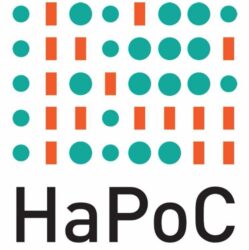The DHST/DLMPS commission for the History and Philosophy of Computing invites all interested researchers to the
4th International Conference on History and Philosophy of Computing (HaPoC)
Brno, 4-7 October 2017
In their societal impact, computers have grown way beyond their roots in mathematics and logic. Their ubiquity since the late 20th century has increased the number and impact of several of the original questions raised by early computer scientists and practitioners: questions about their expected and intended behaviour, as Alan Turing did when asking whether machines can think; questions about their ontology, as John von Neumann did when asking what the computer and the human brain have in common; questions about their role in performing human tasks, as Norbert Wiener did when asking whether automatic translation is possible. With new technologies, the need for rethinking formal and technological issues is crucial.
The computerisation of our lives can hardly leave anyone without opinion. HaPoC’s appeal to historical and philosophical reflection is an invitation to all: designers and manufacturers, computer practitioners, users and artists, logicians and mathematicians, and with the increasing ubiquity of the machine every citizen, with her own experience of the computer.
HaPoC conferences aim to bring together researchers exploring the various aspects of the computer from historical or philosophical standpoint. With Nathan Ensmenger we may say that facts do not change, but our understanding of them does. The series aims at an interdisciplinary focus on computing, rooted in historical and philosophical viewpoints. The conference brings together researchers interested in the historical developments of computing, as well as those reflecting on the sociological and philosophical issues springing from the rise and ubiquity of computing machines in the contemporary landscape. Past editions of the conference have successfully presented a variety of voices, resulting in fruitful dialogue between researchers of different backgrounds and characteristics. Celebrating the revolutionary exhibition Computer Graphic held in Brno in the spring of 1968, HaPoC emphatically extends the invitation to its fourth international conference to reflections on computers and art.
For HaPoC 2017 we welcome contributions from logicians, philosophers and historians of computing as well as from philosophically aware computer scientists and mathematicians. We also invite contributions on the use of computers in art. As HaPoC conferences aim to provide a platform for interdisciplinary discussions among researchers, contributions stimulating such discussions are preferable. Topics include but are not limited to:
– History of computation (computational systems, machines, mechanized reasoning, algorithms and programs, communities of computing and their paradigms,…)
– Foundational issues in computer science and computability (models of computability, Church-Turing thesis, formal systems for distributed, cloud and secure computing, semantic theories of programming languages, …)
– Philosophy of computing (computer as brain / mind, epistemological issues, …)
– Computation in the sciences (computer experiments and simulations, computer-aided systems for teaching and research, …)
– Computer and the arts (temporality in digital art; narration in interactive art work, speculative software, programming as a deferred action, computing and affect, performativity of code, eristic of HCI, …)
We cordially invite researchers working in a field relevant to the main topics of the conference to submit a short abstract of approximately 200 words and an extended abstract of at most a 1000 words (references included) through EasyChair at
https://easychair.org/conferences/?conf=hapoc2017
Accepted papers will be presented in 30 minute slots including discussion. Abstracts must be written in English. Please note that the format of uploaded files must be in .pdf. Submissions without extended abstract will not be considered.
Deadline for paper submission:
15 May 2017
Notification of acceptance:
15 July 2017
Conference fee:
EUR 150
A limited number of grants will be available.
The conference will be preceded by a special workshop on the reception of Hilbert’s axiomatic method in Eastern Europe on 3 October (Tuesday) – organized by Mate Szabó
Accompanying cultural programme will include the remake of the 1968 Brno exhibition Computer Graphic (featuring Frieder Nake and others), the first computer art exhibition in Eastern Europe, preceding Cybernetic Serendipity by several months, Live coding performance (inspired by the Exhibition Computer Graphic), the concert Exposition of New Music (contemporary music), and field recordings of Brno (student project).
